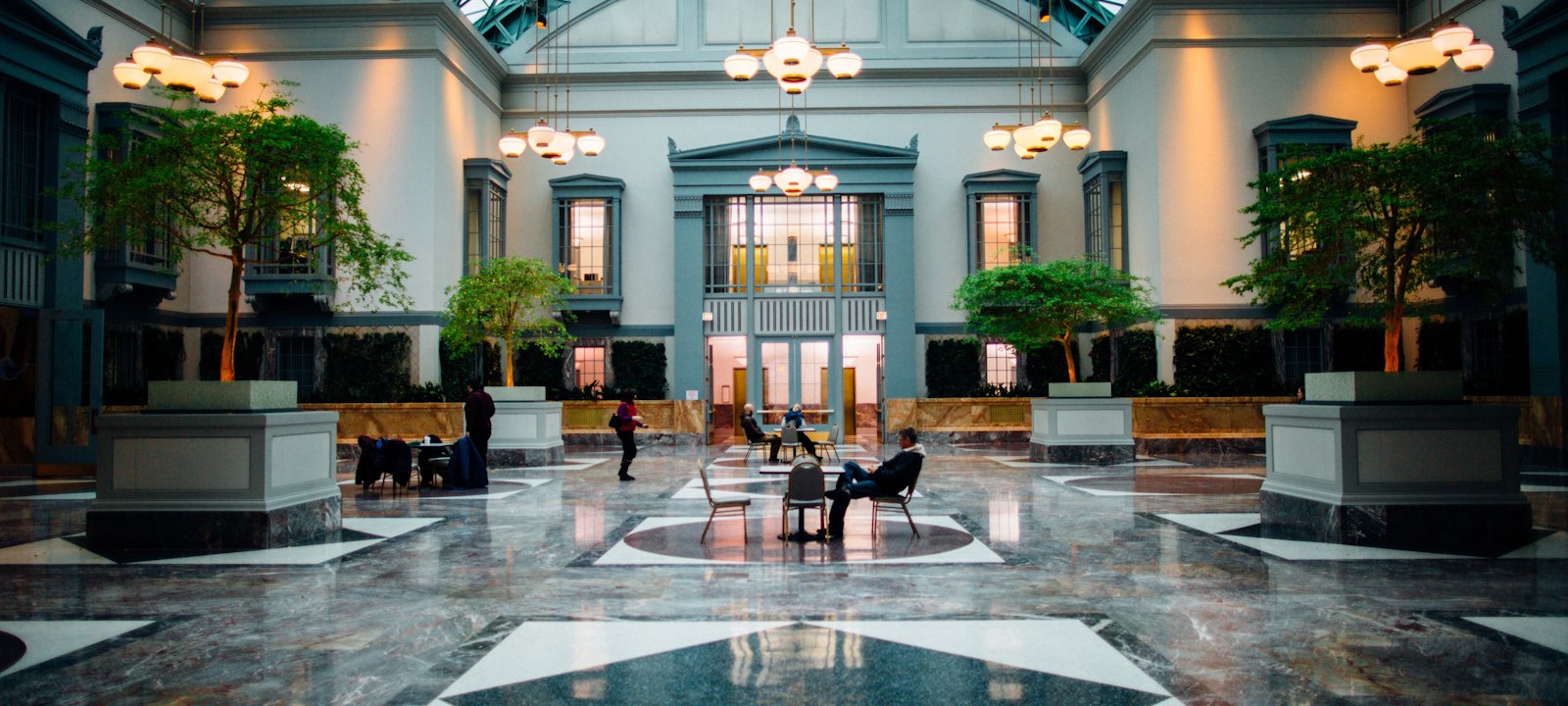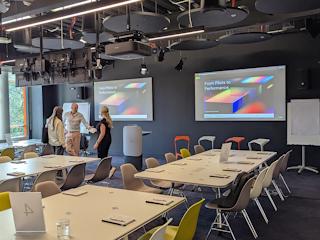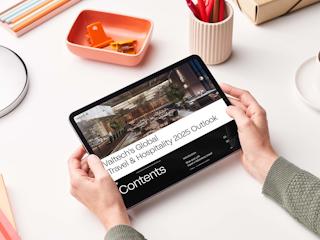Over the last few years, we have seen environmental pressures shift the perception of airline travel, increase the prevalence of ‘staycations’ and drive greater focus onto the rail industry. We have also seen an increasingly digital approach from the hotel sector, where the customer experience reaches beyond the holiday and across every touchpoint.
With so much to consider, we spoke to subject matter expert, Dennis Esser, to discuss the ongoing impact of the last few months, and what companies should be thinking about to stay relevant (and afloat) going forward.
Q: Dennis, there is no doubt we’ve seen a huge negative impact across the travel industry due to the Covid crisis; do you think there will be opportunities for these major global brands to recover?
A: It’s true that for many employees and players in this sector these are very difficult and painful times. Please be aware that for some companies this is a substantial crisis and challenge and not all will come safely out of this.
But this crisis also gives us an opportunity to rethink our approach to travel.
People might become more aware of the impact travel has on the planet and on the people across countries. Corona not only showed us how extensively travel impacts the environment, but also how economically dependent many countries are on the tourism industry.
Moreover concerns about our individual health and the health of the people around us came very sharply into focus and will clearly need to be addressed by T&H companies in the future.
Nevertheless I am convinced that eventually we'll find ways out of this crisis and into new forms of travel.
The deep fascination in travel will definitely remain: exploring new countries and cultures, visiting beautiful nature, experiencing a vast array of different foods etc. But eventually we'll find a more balanced approach to travel. Corona has encouraged us explore closer areas and attractions and we’ve also found great experiences and connection to the people around us. Local and short distance travel will definitely become more relevant going forward.
Major brands in this field need to take those paradigm shifts very seriously and find ways to tackle these new demands and integrate measures and new offerings into their businesses whilst staying profitable. Furthermore how those brands market travel in the future might change to a more meaningful and responsible way.
Q: What kind of trends were we seeing pre-covid and have these been accelerated due to the Covid outbreak?
A: Before the crisis many companies strived to create a more personal and seamless overall user experience and come up with smart and relevant up- and cross-sell opportunities to increase revenue (as the actual margins of regular operations dropped heavily due to the decrease of ticket prices). I think this trend will continue and intensify. Travel remains an outward expression of individual lifestyle decisions, both in private and in business lives. During the crisis people have still shared their travel pictures and videos through social media and are longing to get new experiences. Technology will further support people in tailoring the most appealing and individual travel experience for oneself. Smart assistants will support in creating highly personalized experiences and services.
Next to touchless smart interfaces, personal devices are become the ‘control unit’ for many different building blocks of the travel journey.
The crisis has forced many individuals to alter their private and business travel plans. This resulted in a high volume of ticket cancellations and re-bookings. It became obvious that companies with no strong digital costumer care and self servicing solutions couldn’t cope with the manual processing. The trend definitely started before Covid and investments into further enrichment the these areas (e.g. self-servicing portals, costumer service chatbots etc.) are to be expected.
Another trend which will further continue will be the extension of award- and loyalty- programs. Companies rewarded frequent costumers with a vast offering of different products, discounts, services and amenities and will continue to further refine and increase their portfolio. In return they receive costumer insights and will become better in delivering the optimal personalized user experience and turn those customers into long-lasting loyal customers.
Q: Digital has been changing the way that people travel for a while now - what have been the most encouraging innovations that you’ve seen during the crisis ?
A: During the lockdown companies, startups and individuals have heavily invested time and effort into new ideas and solutions for travel. For example one is now more than ever enabled to experience different scenarios with a VR headset. Modern graphic chips deliver astonishing picture quality and create immersive travel experiences. For example you can experience different sights of nature, historical places or museums or even clubbing/music sessions from the comfort of your own couch.
Another technology which definitely took leaps in development is robots. In hospitals robots took care of the sanitisation process and distribution of meals. Going forward robots might be utilized to also do the cleaning of hotel rooms or cruise ship cabins. Furthermore they could take over tasks like luggage handling or food distribution.
Q: Clients are having to totally reimagine their business models in response to changing customer behaviours - as accelerated by Covid. What are some quick wins that these brands can start thinking about?
A: For many years we've worked with different clients in this sector and often we've stumbled upon legacy systems and technology, structural issues or procedural inefficiencies.
Having quickly adaptable marketing and backend- and frontend technologies to be able to easily restructure or integrate new stuff now turns out be a huge success factor to respond to the new situation. Agile methodologies have been and will further be key to adapting to change and focusing on the most returning initiatives. Also from a technology standup flexible systems and frameworks support the fast and value adding delivery process. The crisis now forces T&H companies to adapt those more quickly.
Another potential quick win might be to consider different adaptions of pricing and payment offerings providing more incentives and flexibility to the customers. Obviously now prices for future travel are quite low as companies need to stem against their high fixed costs. But in addition to marketing those they might want to consider offering more flexible payment schedules like payment in installments, cancellation insurance, early bird fees and extras etc.
Q: What do you imagine the future of travel is going to look like? Ticketless journeys? biometric station / airport data? What concepts have we been exploring with clients?
A: Corona showed us how fast and unpredictable a virus can be in threatening health across the globe. People will definitely become more conscious about their individual health in the future.
And that is the reason why travel and hospitality companies need to adapt and offer even more safety measures to address these concerns and maybe even the future regulations from governments.
One example could be providing more touchless interaction solutions (e.g. voice- and gesture control or facial/biometric check-in solutions). Also innovations like contactless payment will become more wide-spread in the future. I expect printed boarding passes will further vanish and be replaced by digital solutions. And sooner or later maybe also the beloved passport might be replaced by a digital version to enable a complete contactless boarding. Airports and cruise ships might ask for digital health pass or conduct a fever measure or virus test before actual boarding. Personal devices (e.g. smartphones or smartwatches) will be utilized more and may unlock the hotel rooms, act as a remote control for the appliances in the room or control the inflight entertainment systems in airplanes specially adapted to the individual streaming and entertainment preferences.
I predict business travel in particular will change as many companies have experienced reliability of remote working with digital solutions like video conferencing or online collaborative whiteboard platforms. No doubt business travel will come back as many industries rely on it, but flying a couple of hours across the globe for a one hour meeting will probably fade away in the future.
--
When it comes to digital transformation, we help our clients to confidently navigate industry disruption. From pre-trip to post trip, we engineer fully connected traveller experiences that build emotional connections and drive better business outcomes. From reducing the carbon footprint of the aviation industry, to transforming the in-hotel customer experience, from far-flung destinations to environmentally friendly staycations, we’re innovating across the world to deliver the next frontier of digital travel. Why not speak to our experts today?











